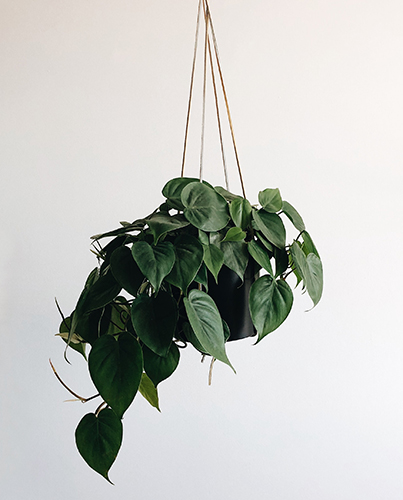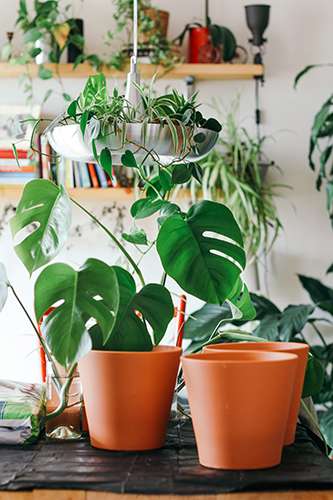
Improve Air Quality With These Plants
The levels of air pollution in our homes can average 2 to 5 times higher than the air outside, according to a study by the Environmental Protection Agency (EPA). Especially after certain activities, such as paint stripping, indoor levels can be 1,000 times higher than outside levels. Considering we spend about 90% of our time indoors, these levels are concerning.
The following substances found in these everyday household items can produce headaches, sore throats, or allergy-like breathing troubles:
- xylene – paint, vehicle exhaust, leather, rubber, tobacco smoke
- mouth & throat irritation, dizziness, headache, confusion, heart problems, liver & kidney damage
- benzene – furniture wax, insect sprays, glue, detergents
- eye irritation, drowsiness, dizziness, increase heart rate, headaches, confusion
- trichloroethylene – paint remover, adhesives, printing inks, lacquers
- excitement, dizziness, headache, nausea, vomiting
- formaldehyde – upholstery, air fresheners, paper towels
- nose, mouth & throat irritation, swelling of larynx and lungs
- ammonia – window cleaners, floor wax, fertilizer
- eye irritation, coughing, sore throat
How to reduce toxins in your home
An easy solution is to add house plants. Plants naturally absorb pollutants and can potentially detox your home of some of the most harmful substances. Not only do plants enhance the indoor air quality, but greenery is also mood-boosting and lovely to look at. While there is debate about the effectiveness of plants’ air-purifying qualities, many studies show that even modest amounts of Horticulture Therapy improves happiness, memory, and overall mental health through a sense of purpose.
 If you are looking to add potentially air-purifying greenery to your home consider adding these easy to care for plants to your living space.
If you are looking to add potentially air-purifying greenery to your home consider adding these easy to care for plants to your living space.
- Devil’s Ivy or pothos (Epipremnum aureum)
- Toxins removed: xylene, benzene, formaldehyde, and trichloroethylene.
- Red-Edged Dracaena or dragon tree
- Toxins removed: formaldehyde and xylene.
- Peace Lily (Spathiphyllum)
- Toxins removed: benzene, carbon monoxide, formaldehyde, trichloroethylene, xylene
- English ivy (Hedera helix)
- Toxins removed: formaldehyde and benzene.
- Spider Plant (Chlorophytum comosum)
- Toxins removed: formaldehyde and xylene
- Snake Plant/Mother-in-Law’s Tongue (Sansevieria trifasciata)
- Toxins removed: formaldehyde, trichloroethylene, benzene, and xylene.
- Areca palms (Chrysalidocarpus lutescens)
- Toxins removed: benzene, carbon monoxide, formaldehyde, trichloroethylene, xylene
- Aloe Vera (Aloe vera or A. barbadensis)
- Toxins removed: formaldehyde.
- Chinese Evergreen (Aglaonema)
- Toxins removed: formaldehyde and xylene.
- Boston Fern (Nephrolepis exaltata v. Bostoniesis)
- Toxins removed: formaldehyde and xylene.
Insurance Questions?
This is by no means a complete list of air-purifying plants to add to your home. We found a great list to improve air quality with these plants. This list even includes a bit more information about each plant – some plants can be toxic to pets and children, for example – and the recommended location for the best results.
Stay on top of your health insurance by CALLING US at (844) 410-1320
Get affordable health insurance quotes by clicking here.
See our other websites:

